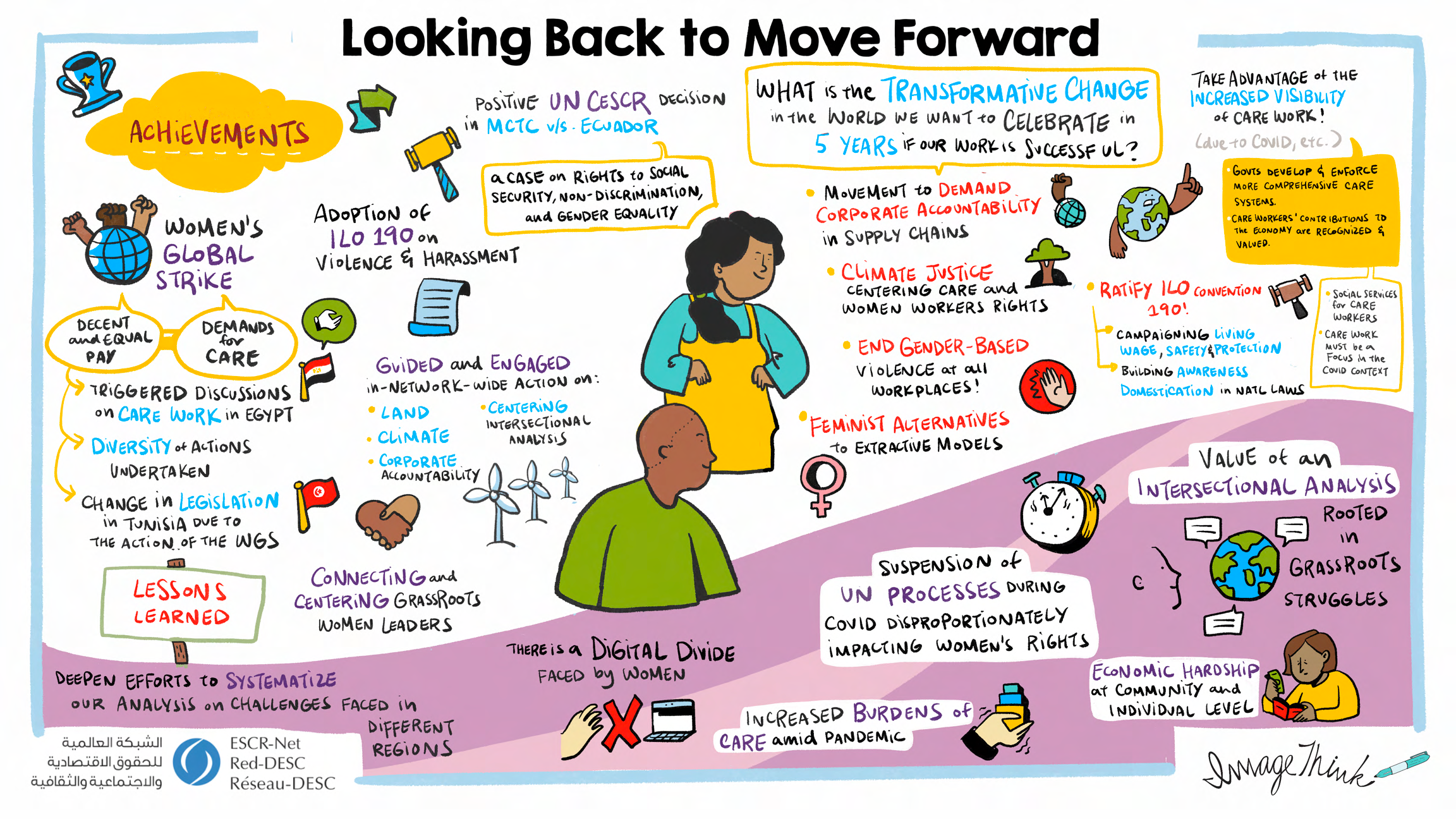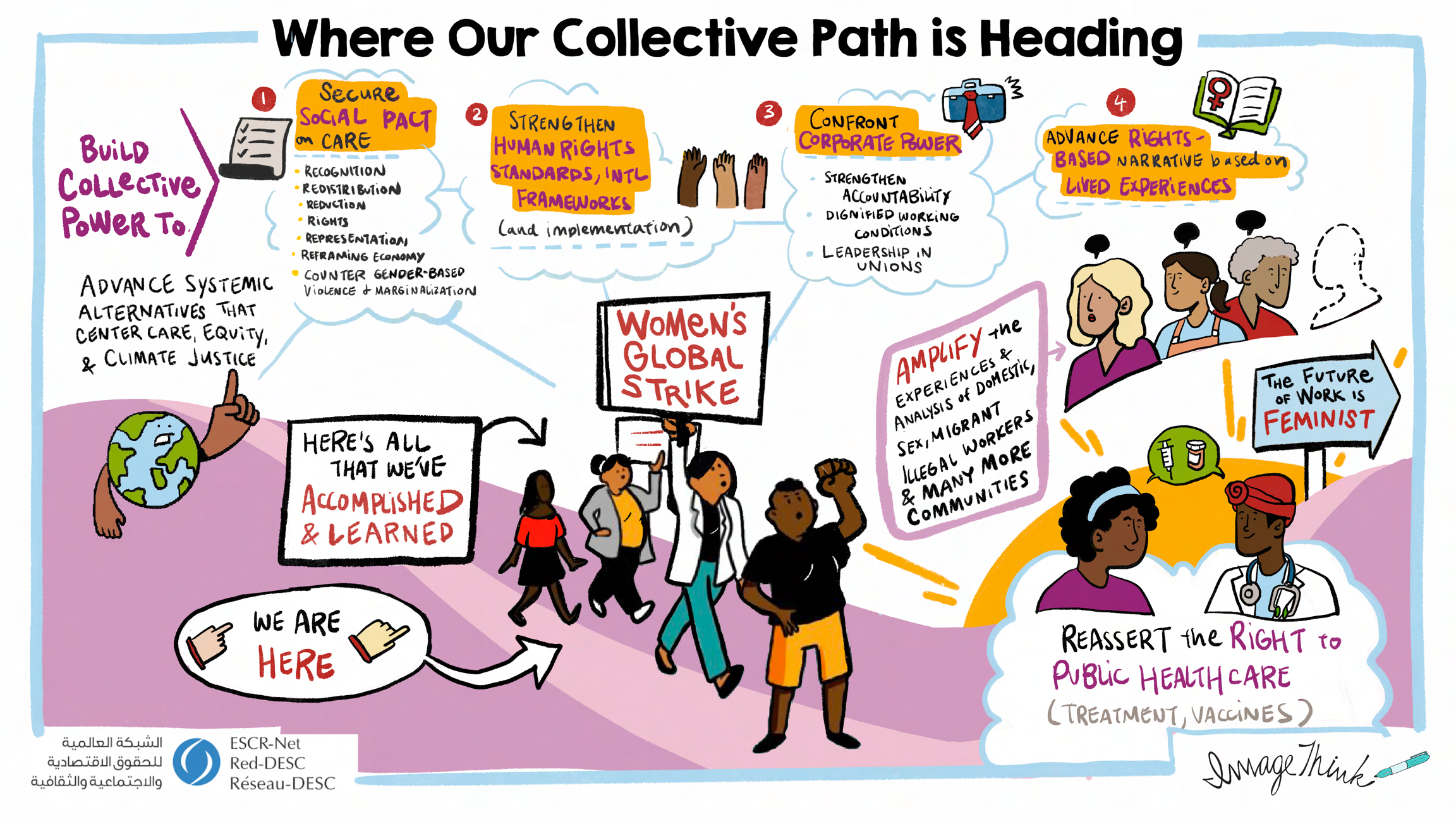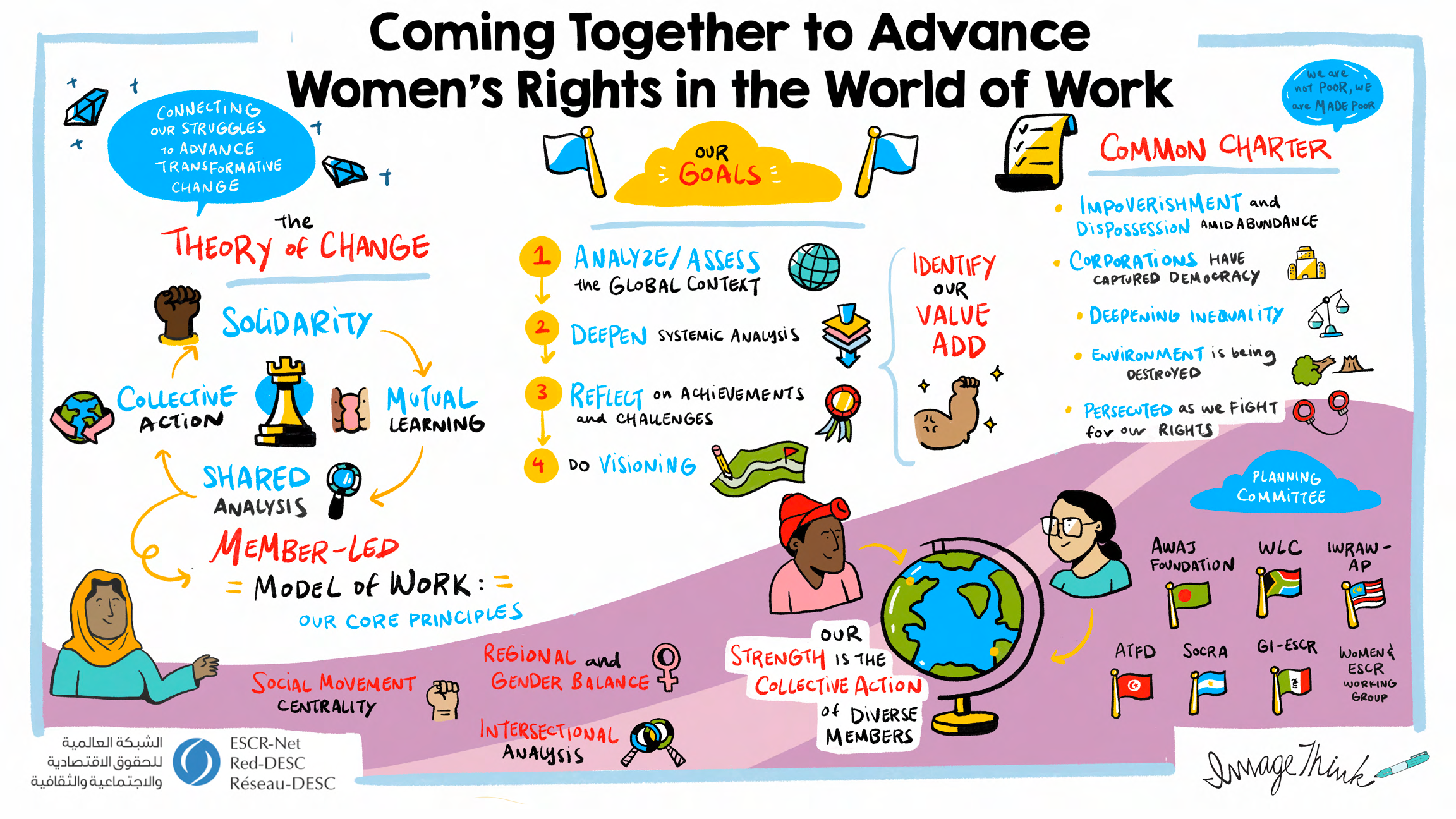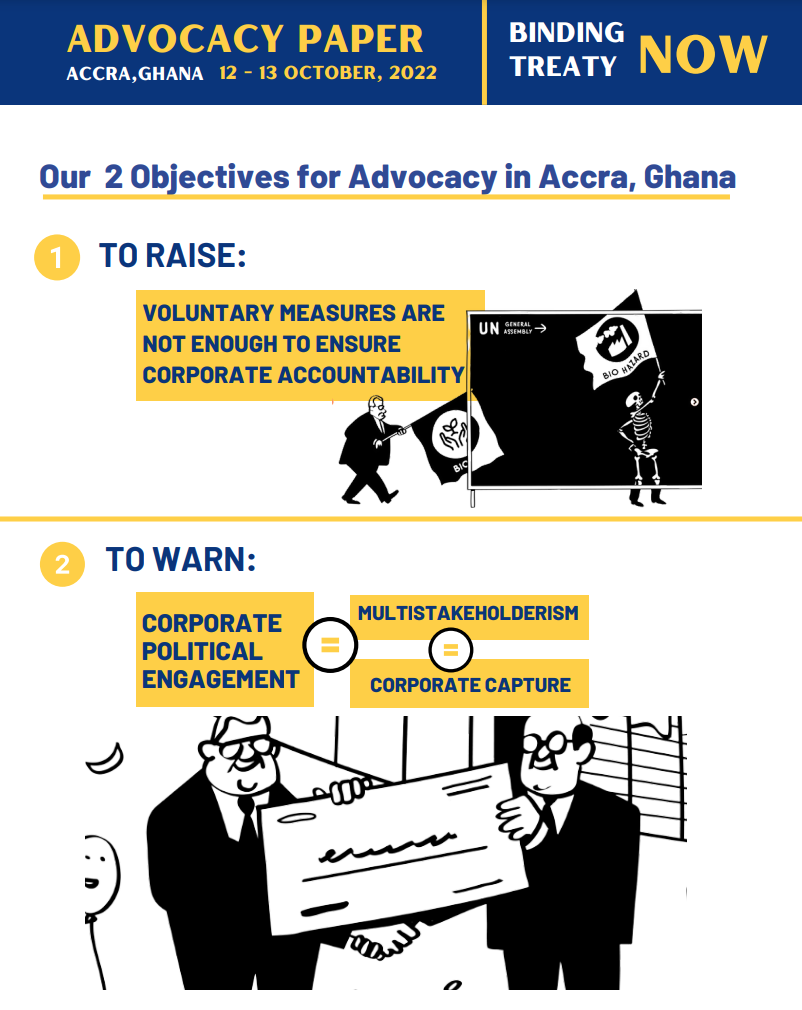Members of the Working Group on Women and Economic, Social and Cultural Rights came together during a strategic meeting on women and work (September 28, 29 & 30) which aimed to identify key priorities for the years to come. For the occasion, an ad hoc committee was set up to guide the organization of the meeting, composed of the following members: Shanti Uprety (IWRAW-AP, Malaysia), Claudia Lazzaro (SOCRA, Argentina), Najoua Baccar (AFTD, Tunisia), Nazma Akter (Awaj Foundation, Bangladesh), Alejandra Lozano (GI-ESCR, Mexico) and Charlene May (WLC, South Africa).
During the online three-day meeting, roughly 20 working group members discussed advances and setbacks in women’s rights, the impact of the Covid-19 pandemic on women’s rights, and the many challenges women human rights defenders face. The second and third working days focused on the impact the working group hopes to achieve through collective analysis and members mobilization. The meeting was an opportunity to reflect on past learnings from recent activities and recent collective work on care work and violence against women at work.
Four long-term outcomes were defined during this meeting
- Care work is increasingly recognized, redistributed, reduced, grounded in rights, and represented and shaped by caregivers, with socioeconomic alternatives that center care and sustainability challenging dominant systems.
- Strengthened accountability in global supply chains contributes to women’s full enjoyment of their human and labor rights, as well as dignified working conditions and active participation and leadership in employee representation bodies.
- Strengthened human rights standards and implementation vis-a-vis women’s rights related to work effectively counter gender-based violence and, more broadly, the precarity and marginalization of women’s work.
- The popularization of a rights-based narrative on women and work challenges patriarchal and retrogressive tropes of economic empowerment and ultimately builds popular power to advance equitable, just and sustainable alternatives.





